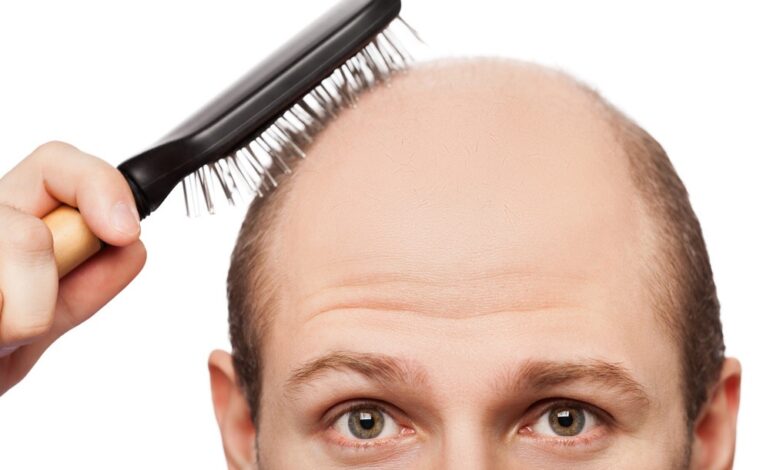Vitamins for Hair Loss.
Hair loss is an important manifestation of menopause and aging. Averagely, the scalp gets to lose approximately 100 hairs a day. Vitamins like C and B6 are important for keeping hair healthy and improving hair growth. Most adults do not know that they are deficient in vitamins and marvel at what is causing signs like hair loss. Continue reading to get to know more about nutrients and high-quality vitamins to stop hair loss.
Vitamins are often responsible for hair loss when vitamins are not provided enough to push hair into the growth phase. Prolonged nutrient deficiencies can often produce thin, vulnerable and brittle hair. Adding additional vitamins to the diet will improve hair health, expand the growth segment and make hair healthier, thicker and brighter.
Healthy hair does not just require vitamins. Hair also needs protein and fats to grow healthy and strong. Minerals, vitamins and amino acids work together to keep your hair healthy and pleasant on the head. It usually takes about 4 to 6 months to see the full effects of a greater wealth on a diet you eat.
These vitamins are vital for healthy hair. Add them to your food plan and also you’ll see improvements in your hair health, hair that remains longer within the growth phase, and hair that is much less likely to fall out and break.
VITAMIN A
Vitamin A is an essential vitamin necessary for scalp oil production, also called sebum. Our hair becomes arid and brittle without sebum, a thick scalp and dandruff forms, which can be traumatic in treating.
Dry hair, in the end, begins to break, and when the hair is damaged and not healthy, it can usually result in long-lasting hair loss.
Vitamin A, which is an antioxidant, can be obtained from oranges, mangoes from pumpkin carrots, sweet potatoes and liver.
Vitamin A is rich in antioxidants that can be used to regenerate pores and skin, nails and hair. Vitamin A is a fat-soluble nutrient, which implies that you should not take excessive amounts of it to not overdose. This can be undoubtedly dangerous for both sexes, but especially for women who may be pregnant. Overdoses of vitamin A can cause miscarriages or birth defects. It is not supported for pregnant women, infants or women who can get pregnant to take larger doses of vitamin A than what is found in a multivitamin.
It is also crucial to eat protein on the side of vitamin A. Proteins are also essential for durable and tough hair and consist of collagen that can help improve the skin on your head and limit dry and itchy scalp.
VITAMIN B
Vitamin B is vital for hemoglobin, which incorporates oxygen to the scalp via the cells of crimson blood.
There are several types of Vitamin B, and the exceptional treatment for hair loss is vitamin B-6, amino-benzoic acid, inositol and biotin. Vitamin B can be obtained from seafood and fish, meat, beans, poultry, peas, oats, eggs, bananas, low or non-fat milk and potatoes.
Precisely, biotin and vitamin B5 are the most useful for hair growth. Biotin is a vitamin that helps in building hair shingles to be durable and also helps in repairing damaged hair components. Biotin is particularly important for color-treated or stylish hair, which will become weaker with the overuse of styling equipment, heat tools and styling products.
VITAMIN C
The healthy development of collagen relies on vitamin C and also collagen which is essential in the event that you want to have healthy hair.
Oxidative stress is associated with the cause of hair loss as people age. Vitamin C is high in antioxidants, making it the perfect vitamin to prevent damage and stress in hair due to free radical damage. The more a person receives, the more free radicals are present in the body, damaging DNA, membranes, lipids, proteins and hair follicles. The body additionally produces fewer opposing enzymes to combat oxidation as it ages, leading to additional damage that can cause hair loss and age. Some studies indicate that higher doses of vitamin C within the framework can increase the health of the hair and even postpone the ash of the hair. Researchers advocate taking a thousand milligrams of vitamin C every day as a supplement to combat loose root damage.
There are many enjoyable and luscious foods that are rich in vitamin C, which includes; lemons, grapefruits, blueberries, blueberries, kiwis, pineapples, strawberries, mango, tomato and guava.
VITAMIN D
Various researches have proven the interrelationship between vitamin D and calcium levels and hair growth. This is essential for the hair follicle cycle. A great source of vitamin D and calcium is fortified milk.
Vitamin D, although known as a vitamin, is actually a hormone. Vitamin D is a vital hormone for calcium homeostasis, differentiation of cell growth and immune regulation. People who suffer from hair are also regularly deficient in vitamin D (as are many Americans).
One of the best ways to absorb the D diet is through exposure to the sun. Sitting under the sun for about 10 minutes a day, you can absorb up to 10,000 units of nutrition. You can also take dietary vitamin D3 supplements and consume foods rich in vitamin D such as mushrooms, seafood and dairy products fed with grazing.
These vitamins are essential for the prevention of hair loss due to menopause or aging. Getting these vitamin supplements for your aged and loved ones who are battling with hair loss will help in preventing further hair loss.
At Applied Home Health Network, we offer medication management services which include; assisting with getting medications refilled and picked up from the pharmacy, patient caregiver education, bi-weekly medication preparation and compliance monitoring. Visit our website to book an appointment or call 773-941-5643 for more information.
We Are Social On:

Recent Comments